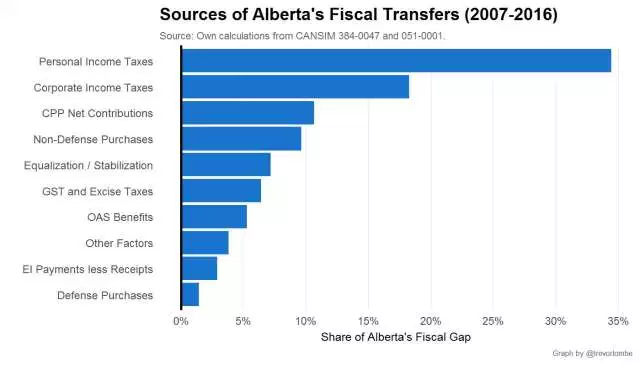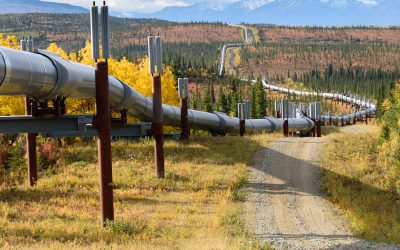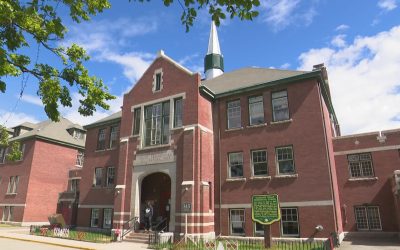The Alberta separatist movement hasn’t burned this hot since the first Trudeau imposed the National Energy Program. Yet, somewhat ironically, Canadians from other provinces feel closer to Alberta than any other faraway province. Everyone that is, except for Quebec, the big winner of the Canadian federation. Loved or hated, Alberta feels like an overworked spouse who’s getting less love and support than she gives. It’s been this way for years and she knows it. And so do many other Canadians.
In January, Angus Reid surveyed Canadians by province to find out which other provinces they liked and hated, how they perceived the rest of Canada felt about them, and who was winning and losing under confederation. Not surprisingly, the prairie provinces felt the closest affinity towards each other, with a similar, but weaker mutual affection found in the Atlantic provinces. British Columbians and Ontarians provided a surprise. Four in ten from these provinces felt that no province was “especially close or friendly” to them, yet three in ten said Alberta would just that. And one-quarter of Atlantic Canadians felt the same friendliness from Alberta—the highest among all provinces outside of their region.
Albertans don’t seem to know that. They aren’t so sure the rest of Canada likes them. At 92 percent, Albertans are the most likely to perceive that at least one other province doesn’t like them. Eighty-one percent of Albertans think Quebec is “unfriendly” to them, while 57 percent name B.C., and 42 percent name Ontario. Saskatchewan has similar sentiments (not quite as deeply felt) and remains Alberta’s biggest friend.
More than three-quarters of Albertans believe they give more than they get in confederation, and nearly one-third of Canadians agree with them. Those polled offered “excessive bureaucracy and regulation for resource projects and unfair equalization formulas” as the primary reasons.
If Alberta thinks they’re losing, who do they think is winning? A remarkable 88 percent of Albertans believe Quebec gets more than their fair share. So do a majority of Canadians in every province or region outside of Quebec. Even Quebecers are more likely to name themselves (21 percent) than any other province as the biggest beneficiaries of confederation. Overall, 53 percent of Canadians would agree, though 24 percent would choose Ontario and 17 percent think Atlantic Canada rides a federal gravy train.
Perception is one thing, but reality is…the same, at least in this case. Consider, in 2016, Alberta sent $49 billion of taxes to Ottawa, but received just $27.2 billion back in federal spending. This gap of $21.8 billion was $5,265 per Albertan. Meanwhile, Quebec paid $50.3 billion in federal taxes but received $66.4 billion. That’s a $16.1 billion boon!
Is this all equalization? No, far from it. It is true that Quebec rakes in more than $11 billion annually from equalization, which is more than 60 percent of the total. However, economist Trevor Tombe has estimated that even if the federal government scrapped equalization outright, Alberta would only save $2 billion each year.

Source: Trevor Tombe, https://nationalpostcom.files.wordpress.com/2018/04/y0tkednm.jpg
So what fills the rest of this fiscal hole? For starters, the average Albertan is younger and richer than Canadians from any other province. Higher incomes also get higher tax rates. Then employment insurance takes more than it gives. Overall, government transfers (from all levels) represent 15.6 percent of Quebec household income, but only 6.7 percent of Alberta’s. Yet, Alberta spends nearly three times as much per capita ($587) on environmental protection as Quebec ($201).
Then there’s that federal government with 113,000 employees in the Ottawa-Gatineau area. Nearly one-third of them live on the Quebec side, and another 30,000 federal employees live elsewhere in Quebec. Alberta has only 15,000 federal employees and probably wouldn’t want any more even if they were offered. Even so, most of these employees enjoy rich defined-benefit pension plans, and boomers are starting to cash in. Alberta has the lowest median age and the lowest percentage of retirees of any Canadian province. Canada Pension, Old Age Security, Guaranteed Income Supplement, federal unionized plans—they all take from Alberta far more than they give. It’s how a socialist Canada turns the Alberta advantage into a disadvantage.
Does Alberta, the most burdened sponsor of this largesse at least get its share of political representatives? No. Were Alberta as well-represented as Quebec, it would have 40 MPs and 12 senators, not 34 and 6 as it currently stands. That ratio won’t improve anytime soon because Alberta still boasts the highest provincial rate of population growth.
Alberta could excel even more if it felt it had better federal and provincial partners. As it stands, the lack of pipeline capacity costs the Canadian economy more than $15 billion a year—much of that borne by, who else, Alberta. It’s little wonder that Canada’s most appreciated province still feels so unappreciated.



